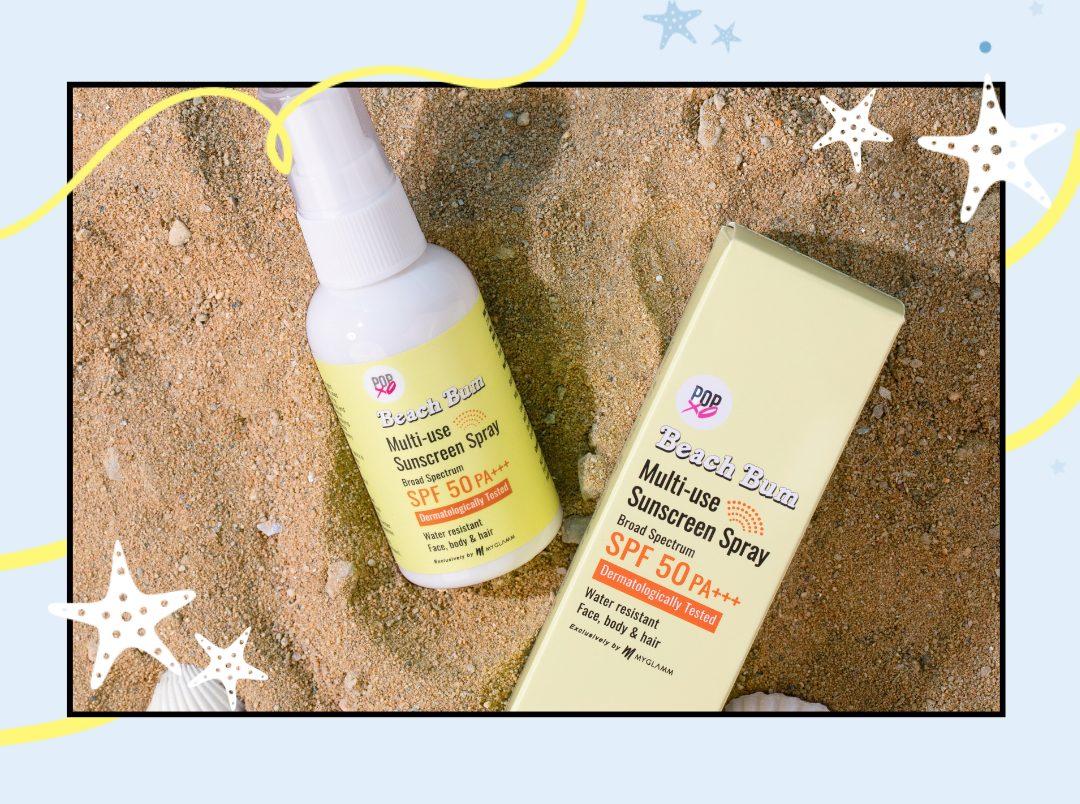We wouldn’t be exaggerating when we say that the coronavirus pandemic has changed our lives drastically. Everything we did out-of-home, we are now forced to do inside our home. We’ve all learnt to be completely self-reliant, but how many of us follow a skincare routine when quarantined? And no, just slathering on a DIY face mask doesn’t count as ‘skincare.’
Today, we’re going to shed some light on one of the most common beauty myths. We’re going to talk about sun protection.

The specifics relating to SPF have always been a little fuzzy, some of us swear by it; others blatantly ignore its need. How much do you apply, do you really need it on a cloudy/rainy day, I’m stuck at home – what’s the point, it’s winter – the sun’s not harsh, sunscreen makes me break out. Bet these sound familiar. But it’s time we set the record straight.
Let’s face it, we’re probably going to be stuck in lockdown for the next couple of months. So we reached out to Dr Kiran Sethi, MD, Celeb Skin & Wellness Expert at Isya Aesthetics and asked her to break down the real reason why we ALL need to be using SPF, even though we’re stuck indoors.
Does your house have large windows or ample natural light?

If the answer is yes, then YES you do need to wear sunscreen even when you’re quarantined.
“The windows in your home still allow UVA and UVB rays to penetrate into your home,” says Dr Kiran. Most modern windows protect us from UVB rays, but UVA rays still penetrate through the windows. And UVA rays are actually the primary cause of skincare concerns such as dark spots, pigmentation, wrinkles and photo-ageing. They’ve also been linked to skin cancer.
So if you find yourself spending time on your terrace, in your balcony or even just sitting by your window soaking up the sun, please slather on the sunscreen. Not just on your face, but on any exposed areas of your skin.
I’m not exposed to sunlight, why should I apply SPF?
Ever heard of blue light or HEV light? Simply put, blue light or High Energy Visible Light is emitted by electronic gadgets. Some common sources of blue light are laptop screens, cellphones, tablets, televisions and some types of light bulbs. The artificial lights in your home or your office also emit this type of HEV light. Why is blue light bad for your skin, you ask? According to Dr Harshna Bijlani, Medical Head of The Ageless Clinic & Celebrity Skin Expert, “frequent exposure to blue light causes pigmentation, free radical damage and breakdown of collagen, resulting in accelerated skin ageing.”
Pretty similar to direct sun exposure, blue light too causes your skin to break down collagen and age prematurely. “Blue light from screens can cause pigmentation and early ageing, mineral sunscreens protect against blue light. I suggest wearing a mineral sunblock at least once a day while on lockdown,” adds Dr Kiran.
Okay, I’m convinced that I need to wear SPF indoors, but should I reapply?

The ideal way to do it is to wake up, wash your face with a mild cleanser and apply your sunscreen. While you should be applying sunscreen at least once a day, ask yourself a few questions before you decide whether or not you need to reapply every 3 hours (as advised by dermatologists). If you’re going to work out during the day and break into a sweat, or perhaps shower after your daily chores – then reapply your sunscreen. If your daily routine is pretty simple, then reapplication is probably not essential, although advised. Dr Kiran says, “Sunblock at home is a must, albeit perhaps not as often.”
How much SPF should you be applying every day?
There are tons of sunscreens on the market, while Dr Kiran strongly advises you to look for a mineral sunscreen, usually, an SPF of 30 is enough if you’re going to be at home with mild sun exposure. If you’re spending a lot of your time outdoors, pick an SPF50. And remember, more SPF does not always equal more sun protection so don’t jump at that SPF70 and SPF100 you see online. SPF50 gives you about 98% protection against UVB rays while SPF 100 gives you a 99% protection. There is a minimal advantage (1%) with added chemicals. Most dermatologists will recommend an SPF30 as long as you reapply.
And don’t scrimp, experts recommend using a coin-sized amount, or 1/2 a teaspoon of sunscreen to adequately protect your face and neck.
Best Mineral Sunscreens
Dr Kiran Sethi swears by mineral sunscreens. They protect your skin from UVA, UVB rays and even protect it against blue light. Moreso, if you have sensitive skin, mineral sunscreen is definitely the way to go. While the market is saturated with different types of SPF, understanding the difference between physical and chemical sunscreen is important, especially if you’re looking for long-term benefits. Here are some suggestions:
We get it, sunscreen is nobody’s favourite skincare product. So while your quarantined self might be tempted to skip SPF, we strongly advise against it. Remember, good skin in your 30s and 40s ALWAYS begins in your 20s.
Seriously, ladies, it’s time you start taking sun protection seriously.




.png)



